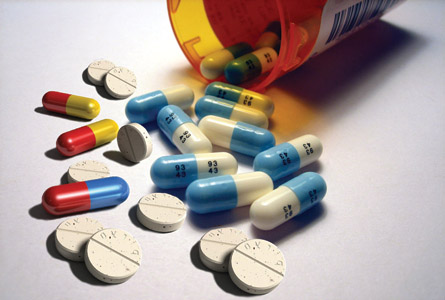As cold and flu season approaches, we’re apt to have a bigger impact on the Bay than usual.

By Deb Self
Published: January, 2011
The main way these drugs get into our waste stream is through our bodies. The unused portion of each dose we take is excreted unmetabolized as the original compound; the rest is excreted as a metabolite that may have different properties, but still pose a threat to fish and wildlife. The secondary pathway for drugs to reach our Bay is by people flushing medicine down the toilet. This approach should be avoided, despite what our parents recommended. Instead, unless you have access to a take-back program, leave expired or unused medicine in the original container and discard in the trash, so it will go to a lined landfill rather than into the water. San Francisco is the most recent city to flirt with regulations for a medicine take-back program, and will vote soon on whether to compel drug companies to take back unused medicines. While this would help keep medicine out of the waste water stream, the medicines would be sent instead to a waste incinerator—a technology with a problematic history of frequent toxic air releases.
Through education, we might be able to reduce the amount of drugs making it into our waste water—if people learn not to flush expired medicine down the toilet. However, since the biggest contribution of pharmaceuticals is through excretion, the only way to keep medicines and other toxic chemicals (like triclosan, the anti-bacterial soap additive) out of the Bay is to improve our local sewage treatment plants. In fact, technology, such as reverse osmosis, exists to remove toxics from waste water, but only a few cities have invested in new or retrofitted plants.
Baykeeper’s Sick of Sewage Campaign is bringing the Bay Area’s collection pipes up to code all around the Bay Area, reducing backups and spills from the system “upstream” of the treatment plants. But there is still a long way to go to bring treatment standards up to what is required by federal law. It will be a long process to identify the best approaches for the Bay Area and to begin the search for funding such capital projects, but we owe it to the Bay to begin the conversation now.
Deb Self is Executive Director of San Francisco Baykeeper, which uses science and advocacy to enforce clean water laws and hold polluters accountable. Deb has 25 years of experience in environmental advocacy and non-profit management, and enjoys paddling the Bay and walking its shorelines.

